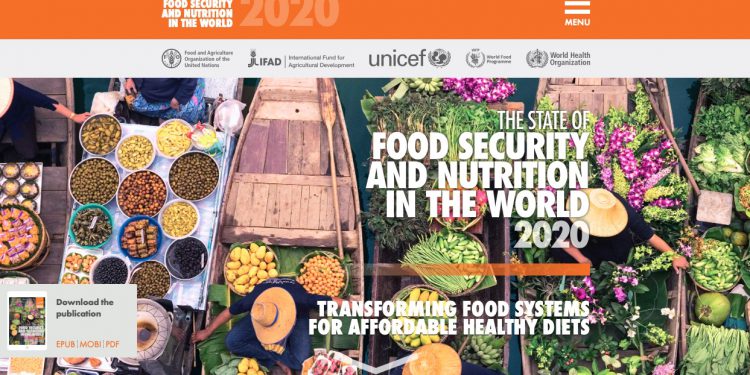Global access to healthy food would reduce the health cost of poor diets by 95% according to a new report by international organizations.
The State of Food Security and Nutrition in the World 2020 is released today by the Food and Agriculture Organization, International Fund for Agriculture Development, United Nations Children’s Fund, World Food Programme and World Health Organization.
It estimates the health costs of poor diets will reach an average of US$1.3 trillion in 2030. More than half this cost is for treating diet-related diseases. The rest accounts for losses in labour productivity (11 per cent) and informal care (32 percent).
Alternative diets suggested in the report would reduce those costs by more than $1.2 trillion.
However, healthy diets are increasingly inaccessible, costing between $3.43 and $3.98 depending on the country, far more than the international poverty line of $1.90 per person per day, and the portion supposed to spent on food, around $1.20.
As hunger in the world continues to increase, more than 3 billion people could not afford a healthy diet in 2017, including 18 million in Northern America and Europe. Most though, 1.9 billion, are in Asia.
The report says the current food system causes between 21 and 37 per cent of total greenhouse gas (GHG) emissions, making it a major driver of climate change, and incurring social costs of around $1.7 trillion. However adopting recommended diets, which include sustainability considerations could reduce these costs to $0.7 to $1.3 trillion, or between 41 and 74 percent, in 2030.
Policies to reduce poverty are crucial
Understandably, the report says the cost of nutritious foods must come down, recommending taxation is avoided on them.
Governments should promote investment in irrigation to improve vegetable production. National food and agricultural strategies should step up investment in research and development to improve production of nutritious foods and help reduce their cost.
Improving national road networks, transport and market infrastructure, would also help.
And crucially, policies to reduce poverty and income inequality, improving employment and income, would help people afford healthy diets.























